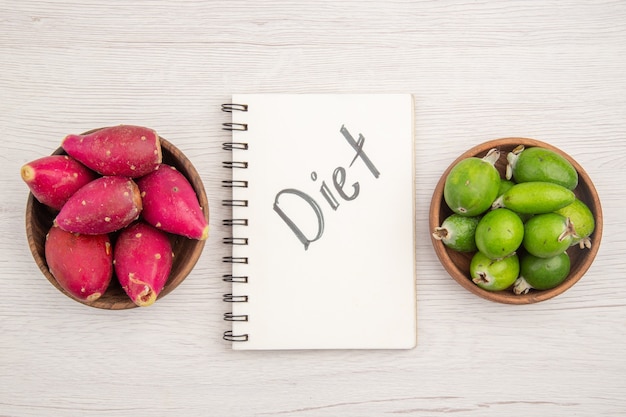
The liver is a vital organ in the human body, responsible for detoxifying waste and breaking down unwanted fat, which it releases through processes like bowel movements. If the liver’s function is disrupted, fat starts to accumulate in the liver cells and throughout the body instead of being eliminated. Fortunately, there are ways to reduce excess liver fat and unwanted body weight by following some healthy tips.
People who drink excessively are the most prone to developing fatty liver disease, a condition that’s increasingly common worldwide. Obesity and type 2 diabetes are also major contributors to fatty liver problems, as both conditions are on the rise globally. However, not all fatty liver patients are heavy drinkers or suffer from obesity or diabetes.
In the early stages, fatty liver disease often shows no major symptoms. But it’s important to address the issue promptly because untreated liver problems can lead to more severe and life-threatening conditions over time.
If you have tried to lose weight, especially around your abdomen, with little success, it’s possible that your liver is affected by fatty liver disease. The following tips can help you address liver health issues and support weight loss.
### Causes of Fatty Liver
Understanding what causes fatty liver disease is crucial before diving into treatments and remedies. Fatty liver disease occurs when excessive fat builds up in liver cells. While it’s normal for these cells to contain some fat, excess amounts are problematic. A liver is considered fatty if its fat content exceeds 5%.
Anyone can develop this condition, including children, but middle-aged men with a belly fat are especially at risk. Common factors that contribute to fatty liver disease include:
#### Excess Alcohol Intake and Smoking
Excessive alcohol consumption is a leading cause of liver damage and fatty liver disease. It disrupts liver function, leading to fat accumulation, particularly around the belly. Heavy drinkers and smokers are at high risk of developing this condition.
#### Obesity
Obesity is another major risk factor for fatty liver disease. Non-Alcoholic Fatty Liver Disease (NAFLD) is prevalent among obese individuals because excess body weight promotes low-grade inflammation and fat storage in the liver. Weight loss can help reduce liver fat.
#### Insulin Resistance
People with insulin resistance, including those with type 2 diabetes and metabolic syndrome, are prone to fatty liver disease. Insulin resistance promotes fat accumulation in the liver.
#### High Consumption of Sugary Beverages
Excessive intake of sugary drinks, like soft drinks and energy drinks, contributes to fatty liver disease because of the high fructose content, which leads to fat accumulation in the liver.
#### Excess Refined Carbs
Consuming too many refined carbs, such as those found in pasta, bread, and sugary foods, is harmful to liver health. These foods can promote excessive fat storage in the liver.
#### Excess Abdominal Fat
Regardless of overall body weight, people with excess abdominal fat are at risk of developing fatty liver disease.
#### Poor Gut Health
Imbalanced gut health can contribute to fatty liver disease as improper gut function can lead to fat accumulation in the liver. This is also categorized under NAFLD.
### Tips to Get Rid of Fatty Liver and Reduce Weight
The liver plays a crucial role in overall health and weight management by filtering toxins and aiding digestion. To maintain liver health and support weight loss, consider these tips:
#### Include Liver-Friendly Foods
Certain foods can help reduce liver fat, such as whey protein, mono-saturated fats, soluble fiber, and green tea. For example, whey protein can reduce liver fat by 20% and lower liver enzyme levels. Foods rich in mono-saturated fats, like nuts, olive oil, and avocados, and those high in soluble fiber, can improve liver function. Green tea, rich in antioxidants, also supports liver health.
#### Eat Satiating Foods
To avoid overeating, choose foods that keep you full longer, like those high in fiber, protein, and healthy fats. This prevents unhealthy snacking and helps manage weight. Whey protein and high-protein foods like fish and poultry, as well as healthy fats from nuts and seeds, can promote satiety.
#### Avoid Carbohydrates, Sugar, and Bad Fats
Foods rich in carbs, sugar, and unhealthy fats contribute to fatty liver disease and other health issues. Limit your intake of foods like rice, pasta, bread, sugary snacks, and fried or packaged foods. Replace omega-6 rich oils with healthier options.
#### Skip Refined Carbs
Research has shown that high-calorie, refined carbs can rapidly increase liver fat. Avoid refined carbs to improve liver and overall health. Adopting a low-carb, low-glycemic index, or Mediterranean diet can significantly reduce liver fat and improve insulin resistance.
#### Drink Liver Tonics
Include a good liver tonic in your diet to support liver detoxification and reduce liver fat. These tonics purify the bloodstream while boosting energy, aiding both liver health and weight loss.
#### Regular Exercise
Exercise is essential for reducing liver fat. Both high-intensity and resistance training can significantly lower liver fat. Consistency is key, with studies showing that regular exercise, even just five days a week, can make a difference. Low to moderate-intensity workouts are also beneficial over time.
By following these tips, you can effectively manage fatty liver disease and support healthy weight loss.